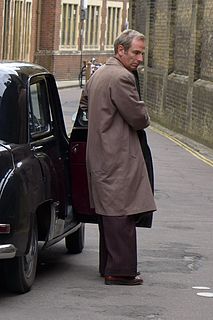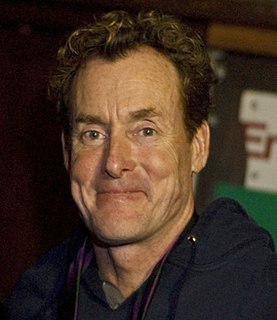A Quote by Steve Martin
I handed in a script last year and the studio didn't change one word. The word they didn't change was on page 87.
Related Quotes
And this has been man's stupidity - a very ancient one: whenever he gets into difficulty, he changes the word. Change the word marriage into soul mates, but don't change yourself. And you are the problem, not the word; any word will do. A rose is a rose is a rose...you can call it by any name. You are asking to change the concept, you are not asking to change yourself.
We didn't hear a word about the Clinton Global Initiative. We didn't hear a word about all the masterful, wonderful things they've done in the aftermath of the earthquake in Haiti. Why not? If you're extolling the virtues of the change, "She [Hillary Clinton] makes more change, she's done more change than anybody in my lifetime! I've never met somebody who is better change."
The very word "change" has changed. When I was young--and not just because I was young--we looked forward with confident impatience to change. Planned, controlled, beneficent change would continue to clear slums, sweep up the remains of empire, raise living and educational standards, tidy away--firmly but kindly--the last aboriginals who still raved about martial glory or the pride of wealth. Now, as it seems to me, change is set almost exclusively in the minor key, change seen overwhelmingly as loss.
I don't think that any scene [in Pineapple Express] is word for word how you'd find it in the script. Some of it was much more loose than others. The last scene with me, Danny [McBride] and James [Franko] in the diner - there was never even a script for that scene. Usually we write something, but for that scene we literally wrote nothing.
We cannot control the way people interpret our ideas or thoughts, but we can control the words and tones we choose to convey them. Peace is built on understanding, and wars are built on misunderstandings. Never underestimate the power of a single word, and never recklessly throw around words. One wrong word, or misinterpreted word, can change the meaning of an entire sentence - and even start a war. And one right word, or one kind word, can grant you the heavens and open doors.
Honestly, that puts a lot of weight on your shoulders because you're representing so many great people who want to see so much. And they're hungry for ... I hate to use the word change because [Barack] Obama used to use that word ... but they're hungry for real change; they're hungry for making things right.


































